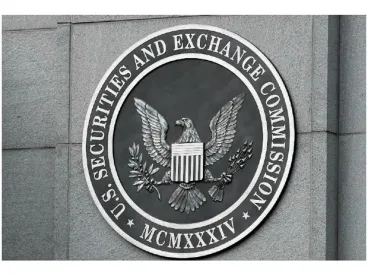On August 17, 2021, the Securities and Exchange Commission (SEC) filed a litigated enforcement action in federal court in San Francisco, California alleging insider trading against Matthew Panuwat. Of note, the SEC action alleges a so-called “shadow trading” theory of insider trading. Typically, insider trading cases involve trading in company securities that are the subject of the material nonpublic information (MNPI) in question, such as trading in the securities of an acquisition target. Here, however, the SEC’s theory of prosecution involves trading in the securities of a company tangentially related to the MNPI in question.
The SEC alleges that Panuwat was employed at Medivation, Inc., a mid-sized oncology-focused biopharmaceutical company, doing business development for the company. During August 2016, Panuwat learned that Pfizer, Inc. would be acquiring Medivation. Within five minutes of receiving a critical email regarding the anticipated acquisition, Panuwat purchased short-term, out-of-the-money stock options—not in Medivation—but in a peer company in the same industry sector named Incyte Corporation. After Medivation publicly announced that it would be acquired by Pfizer, its stock price rose approximately 20 percent during the trading day. That same day, Incyte’s stock price also rose approximately 8 percent. According to the SEC, Panuwat used MNPI about Medivation to speculate that the price of Incyte would increase and, as a result, generated $107,066 in illicit profits.
The SEC’s case has several hallmarks of a typical insider trading case—purchasing short-term out-of-the-money options immediately after receiving MNPI. In this case though, there is a potential disconnect in the SEC’s legal theory since Panuwat traded in the securities of Incyte, Medivation’s peer company, and not in the securities of Medivation itself. A key question, therefore, will be whether the disclosure of the Medivation acquisition was material to Incyte’s stock price. The SEC’s theory assumes a causal connection between Medivation’s public announcement and the 8 percent increase in Incyte’s stock price. This premise seems ripe for conflicting expert testimony regarding the factors that influenced Incyte’s stock price movement as credible arguments likely exist that some portion of the price movement was influenced by unrelated market forces. In addition, it is unclear whether Panuwat traded in breach of a duty to Medivation or some other source to which he owed a duty. Medivation’s insider trading policy appears relatively broad with a prohibition against profiting through trading in the securities of the company’s competitors. The question remains, however, whether a legal duty exists under these facts and circumstances and whether Panuwat’s conduct intentionally or recklessly violated that duty.
The SEC’s aggressive legal theory potentially blurs the line between prohibited and permitted conduct on a going-forward basis. The SEC’s premise seems to be that an employee cannot use information learned through his or her employer as part of the total mix of information to invest in another issuer. But fund managers and other industry participants frequently learn MNPI about an issuer through their employment that influences their broader trading decisions with respect to other issuers. It remains to be seen whether the Panuwat matter is an isolated case or if the SEC will pursue additional enforcement actions alleging a shadow trading theory of insider trading. In the meantime, prudent industry participants should take notice and assume that additional shadow trading cases are a distinct possibility. As a result, legal and compliance departments should assess whether internal policies and procedures require revision to address this emerging enforcement risk.






 />i
/>i
